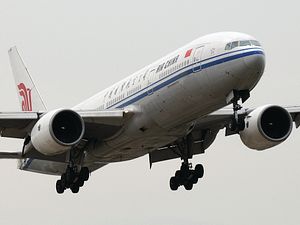“London is generally a safe place to travel,” read a passage in the September issue of Wings of China, Air China’s in-flight magazine, “however precautions are needed when entering areas mainly populated by Indians, Pakistanis, and black people.”
Cue the international outrage.
“Giving this kind of advice is scaremongering,” said Virendra Sharma, Labor MP for the significantly British Asian constituency Ealing Southall, “and putting down some communities who are living peacefully in a very multicultural and multiracial society.”
Sharma asked Air China to pull the magazine from circulation.
“For Air China to suggest that people should avoid Tooting because it has a large Pakistani, Indian or black population is incredibly offensive,” Tooting Labor MP Rosena Allin-Khan wrote to the Chinese ambassador. “I am sure you do not share these views.”
Hua Chunying, deputy director of the Foreign Ministry, said during a press conference on September 8, “We uphold equality among all ethnic groups and oppose all forms of racial discrimination … Relevant departments will have the necessary talks with Air China, and we believe Air China will investigate about this and properly deal with it.”
A few days later, the airline pulled the magazine and issued an apology in which it said, “Air China has resolutely upheld respect for different cultures and customs in the global community.”
All’s well that ends well, right? Except according to The Times of India, Chinese media defended Air China’s racist remarks. Specifically, Global Times published a piece by its op-ed editor, Liu Zhun, in which he wrote:
“According to a report titled Statistics on Race and the Criminal Justice System 2014 released by the Ministry of Justice, black and mixed populations have the highest arrest rates per capita” but, he added, this can’t be openly discussed in the West because of an “unspoken rule to not view society’s ills from the perspective of race.”
He also said the airline should’ve warned against certain neighborhoods (such as Lambeth or Newham) rather than ethnic groups, and that this seemingly racist gaffe is really just the result of ignorance. So he’s clearly not defending racism—he’s contesting that there was any racism in the first place. He doesn’t, however, seem to have read the report in full, because yes, it did show that black and mixed populations have the highest per capita arrest rates. But Air China also warned against Indians and Pakistanis, which the report groups under “Asians,” and guess what? “Chinese or other” have a comparable arrest rate. Plus, the report says, 83 percent of racial hate crimes are committed by whites. But Liu made no mention of these facts.
Nevertheless, Chinese traveling to Europe have good reason to take precautions.
“Thefts targeting Chinese and Asian tourists have grown hugely over the past two years,” The Guardian reported in July 2013, adding, “One explanation is that Chinese tourists often carry large amounts of cash” and “with expensive brand names on their shopping bags, they are an easy prey for thieves.”
Last August, a textile designer and father of two named Zhang Chaolin was beaten to death in the suburbs of Paris when three thieves tried to take his friend’s bag. The local mayor said it was a killing motivated by racism.
“French and Chinese tourism experts both agree that the Chinese have become particularly susceptible to such crimes because of their profligate ways when overseas,” the International Business Times claims, “but especially so in France.”
Still, this doesn’t justify Air China’s mistake or lend credibility to Liu’s argument. As the Guardian article went on to say, “In central Paris the pickpockets are mainly young eastern Europeans controlled by criminal networks that are hard to dismantle.”
In other words, we’re not talking about Indians, Pakistanis, and blacks. We’re talking talking about young adults, most of whom are eastern Europeans.
It’s another case of China’s racial insensitivity, but this time the company involved was quick to make amends, the government chimed in, and the media took a respectable if ill-informed stand. The ball was dropped and then recovered.
Leland M. Lazarus recently wrote about China’s quest for a moral compass, noting the government’s attempt to develop su zhi, or etiquette, among a people who for a century or more have evinced little of it. But this top-down approach works better with companies than the public; the behavior of the masses is equally worrisome.
This week, eight Chinese tourists brutalized a 53-year-old Korean woman when she said they couldn’t bring drinks into her restaurant. They also assaulted anyone who tried to end the violence. That’s a stunning sense of entitlement, and I believe it grows partly from an idea of Chinese exceptionalism that Beijing aggressively pushes. Until that ends, or people can at least openly criticize it, the rest is surface.
































